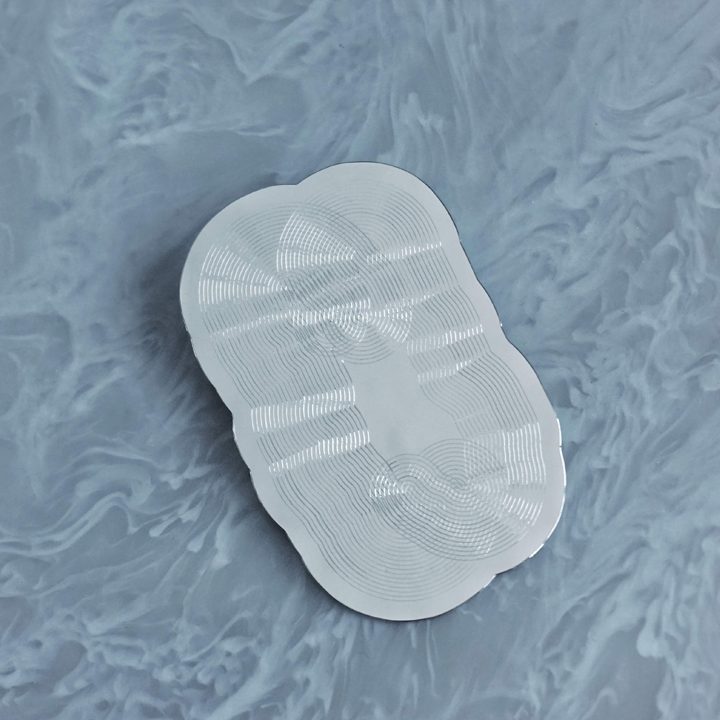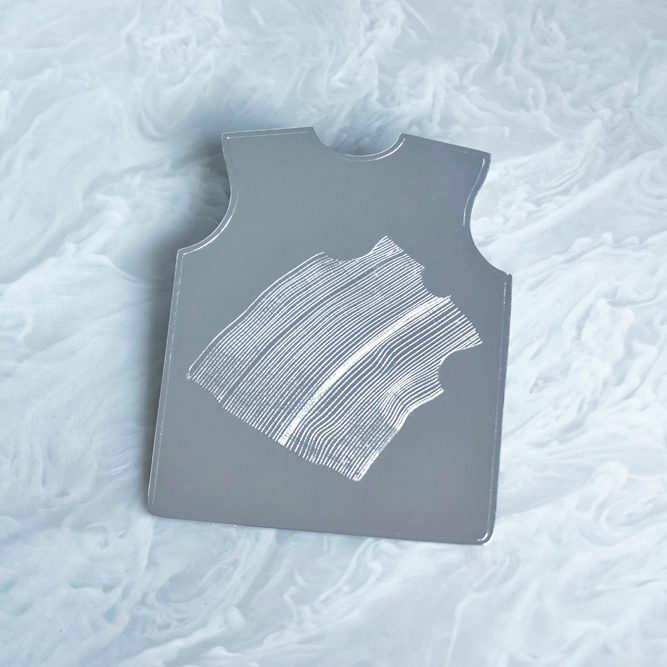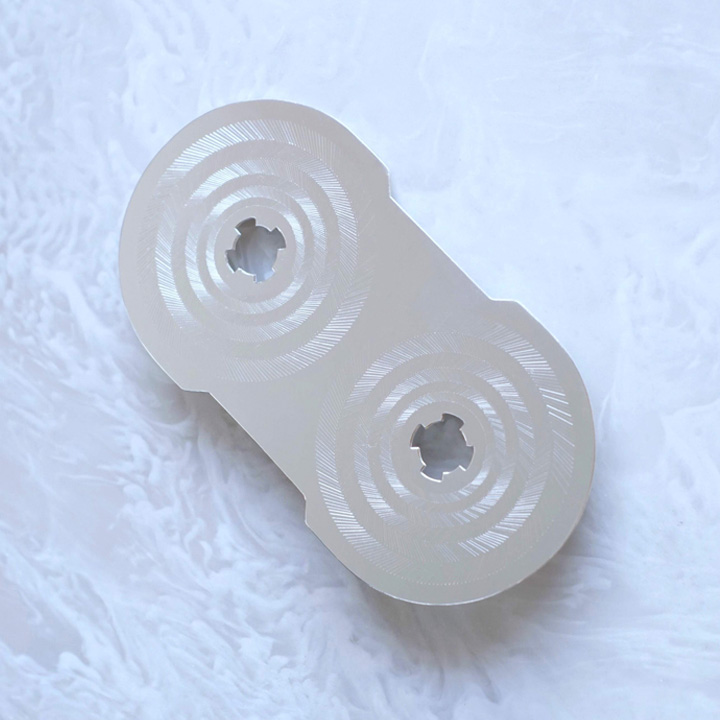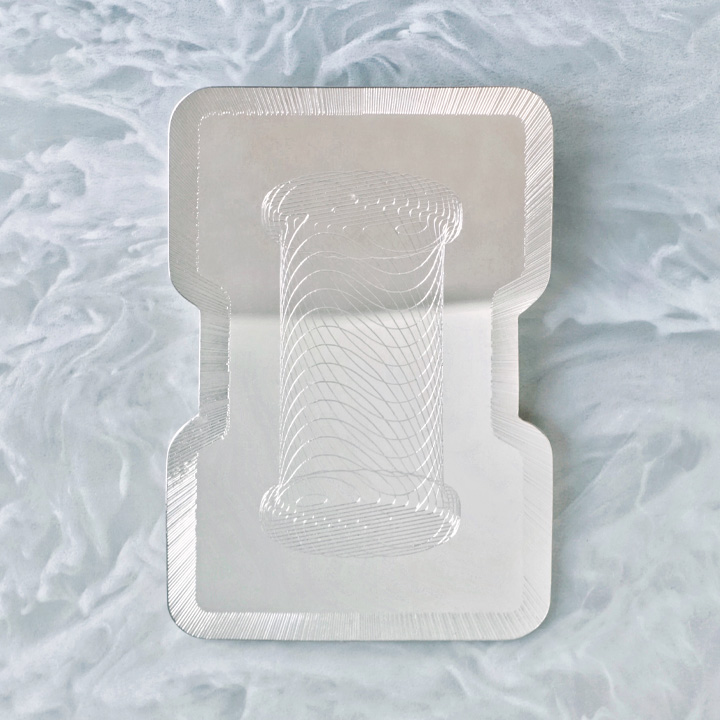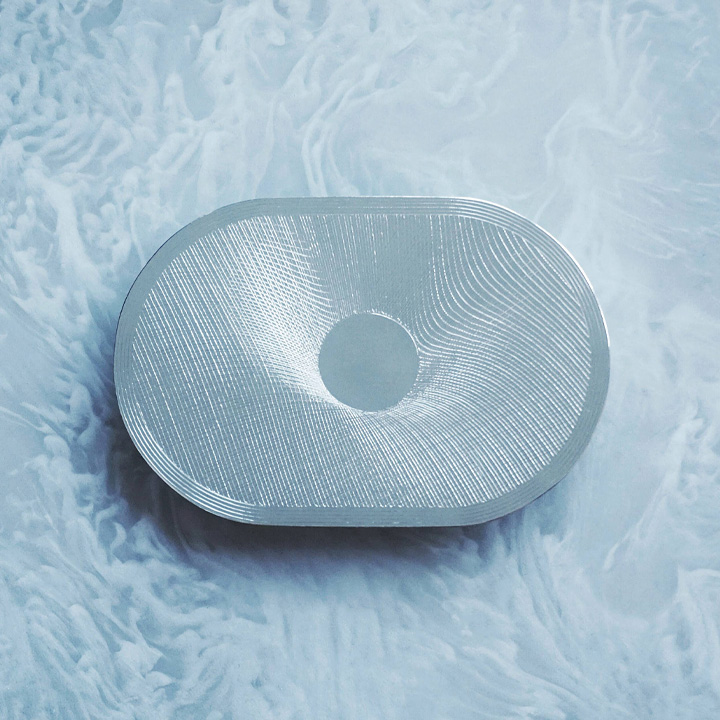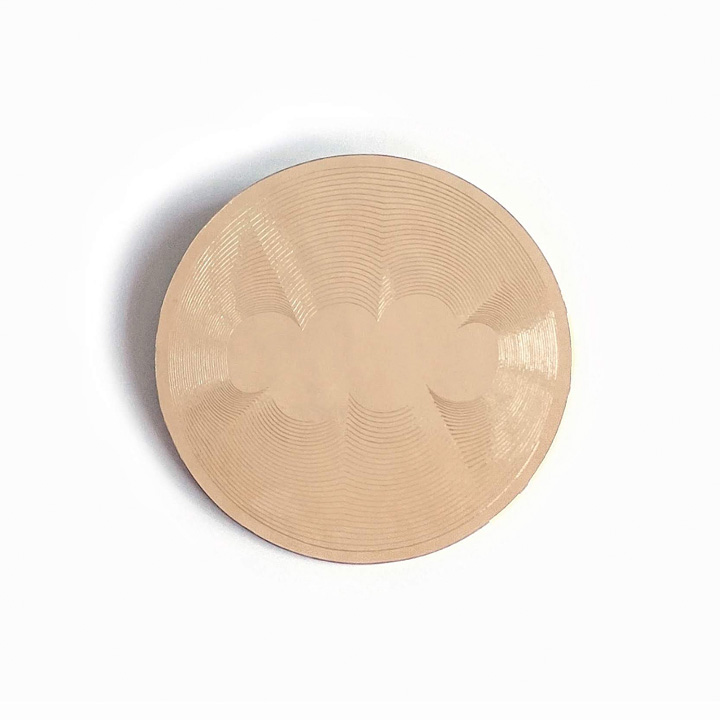Timothy Veske-McMahon / Soft Spot
American artist Timothy Veske-McMahon consistently challenges the body, the heart, and the mind with profound concepts, using jewelry as a vehicle. His newest series, Soft Spot, probes the human dilemma, still further, by addressing memory rather than presence. To Veske-McMahon a soft spot is “a fondness, predilection, and bias. The sore and tender weaknesses that define us. An obscuring blur in vision, memory, or ability.” Gallery Loupe is proud to present these works, along with the timely concerns they embrace. Perception is one of Veske-McMahon’s key precepts. How do we view people in the world around us – our family, friends, colleagues, and strangers? How do we relate to the objects that surround us – both physically and symbolically? When, and why, do things sometimes appear distorted to us, and how can we process these aberrations? With Soft Spot, Veske-McMahon ponders the question of what is real, what we know to be false, what we wish to remember, and how our rapidly advancing technology affects it all. The brooches that comprise Soft Spot wrestle with loss, grief, and remembrance within the construct of today’s post-truth era of fake news and alternative facts. In order to reorient and reorganize our relationship with veracity, Veske-McMahon turns to philosophy. Citing Immanuel Kant, he asks us to divide truth into a phenomenon (thing) or noumenon (thing-in-itself)—i.e., what we perceive or apprehend to be true, because our senses give us certain information, as opposed to that which exists outside of the realm of appearances. [i] Veske-McMahon likens the noumenon to the “unknowable/unseeable/untouchable in regards to memory, loss and grief.” He detects this lack mirrored in the contemporary family and society at large, lamenting its absence. He tells us: “Truth-in-itself does not exist for us, as the thing-in-itself is inaccessible to the perceiver.” Nonetheless, he cautions, “the acceptance of the human condition as estranged from truth is far from palliative.” Veske-McMahon informs us that Aristotle believed to perceive is to suffer. If this is so, he asks: “Does memory become a kind of torture? Is the hoarding of data—as we do now, for example, in uploading information to the cloud—documentation or avoidance of reality?” Media relied upon in the past [such as clay tablets and engravings, papyrus and parchment, photographs and phonographs] countered the failures of human memory, as digital media does today, nonetheless, replacing the material with a technology that is less stable, rewriteable, and more prone to corruption. [ii] Inspired by Socrates’ musings about the written word, when he referred to it as an “elixir not of memory, but of reminding,” [iii] Veske-McMahon fast-forwards to the future, by positing: “When will algorithms understand death and emotional loss?…What happens when we outsource the last of our memory?” (Related Talk) Timothy Veske-McMahon is an Assistant Professor at Rhode Island School of Design, where he is Graduate Program Director for Jewelry and Metalsmithing. He holds a MFA in Metalsmithing from Cranbrook Academy of Art (2013) and BFA in Sculpture (with honors) from Pratt Institute (2004). In 2013 he was Artist-in-Residence at the Estonian Academy of Arts in the Jewelry and Blacksmithing Department. Veske-McMahon has had solo exhibitions at Brooklyn Metal Works in Brooklyn, New York; Beyond Fashion Gallery in Antwerp, Belgium; and Flat Gallery in Bratislava, Slovakia and participated in group shows in Amsterdam, Stockholm, Munich, Tbilisi, and Beijing in addition to Asheville, North Carolina and Boston, Massachusetts. He has won numerous awards and received several grants; his work is included in the collection of the Yale University Art Gallery. Timothy Veske-McMahon / Soft Spot runs from Sept. 8 – Oct. 6, 2018. There will be a reception to meet the artist Saturday, Sept. 8, 2018 6 – 8pm.
_______________________________________________________________________
[i] Noumena (pl.)—a metaphysical term, derived from Greek, which is applied to objects or events that exist independently of human senses and/or perception. German philosopher Immanuel Kant refined the concept in his Critique of Pure Reason, first published in 1781.
[ii] Abby Smith Rumsey, When We Are No More: How Digital Memory Is Shaping Our Future (New York: Bloomsbury Press, 2016). This statement is derived from thoughts found on pages 30-31, 113-114, and 161.
[iii] Plato, Plato in Twelve Volumes, trans. Harold N. Fowler (Cambridge: Harvard University Press, 1925), volume 9, 275.

